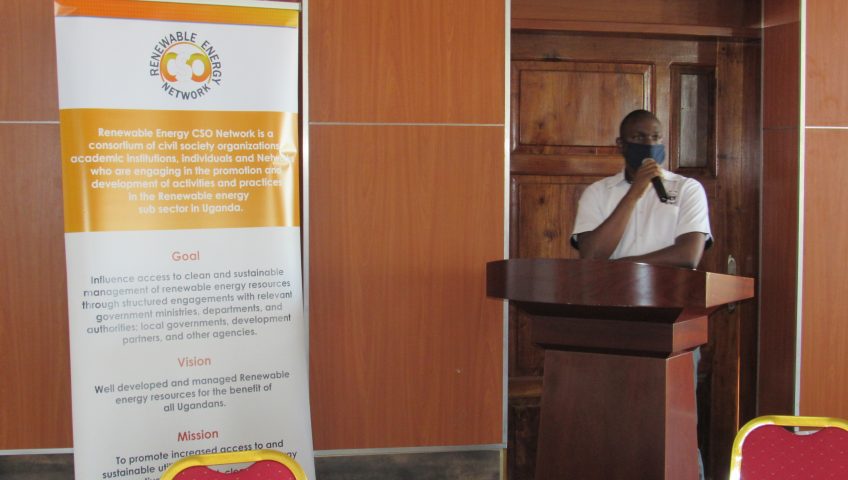Environment Alert (EA) is implementing a project titled ‘Increasing access to sustainable and renewable energy alternatives in the Albertine Graben’ that aims at communities adopting sustainable renewable energy alternatives to reduce dependency on biomass for their energy needs. The project is being implemented in collaboration with World Wide Fund for Nature – Uganda Country Office (WWF-UCO) with financial support from the Norwegian Agency for Development Cooperation (Norad). One of the project outcomes is “Central and district local government have put in place an enabling environment (policies, strategies and incentives) to increase energy access and improve energy efficiency for cooking and conservation”
There are already initiatives that have been done to contribute to the achievement of the above project outcome; that to date Environmental Alert has already conducted a study—‘’Understanding the current status, emerging issues (challenges & opportunities) for advancing Private Sector Investment in sustainable Biomass Energy Production within Central Forest Reserves and Forest Landscapes in Uganda’’
The study aimed at identifying the underlying issues (challenges & opportunities), and offer recommendations and actions for advancing structured investments (by Government & Private sector) in sustainable biomass production within central forest reserves and forest landscapes across the country to contribute towards the huge national demands for biomass energy.
The study highlighted the underlying problem which is the wide gap between biomass energy production (supply) and demand, the unsustainable harvesting of natural forest resources resulting in deforestation and forest degradation which is caused by high population dependency on biomass energy, loss of forest cover due to unsustainable harvesting of forest products, forest clearance for agriculture, urbanization, industrial development; inefficient technologies in the production and use of biomass resources resulting in more trees cut and above all the lack of dedicated and sustained investments in biomass production to replace the biomass harvested.
The study also highlighted some of the limited interventions implemented by government to address the gap such as:
The UNDP-GEF-MEMD – Promotion of Sustainable Charcoal Production Project (popularly known as the Green Charcoal Project) piloted in the districts of Mubende, Kiboga, Nakaseke and Kiryadongo and NFA; The Local Forest Reserves (LFRs) in the selected study area cover 4,997 ha but have not been utilized fully for forestry purposes as the law requires; Communities have planted woodlots and scattered trees on their lands for fuel wood, but most households remain dependent on the available natural sources of wood which have become scarce and difficult for women and children to access. Among others.
The study also recommended some policy options such as
- “MOFPED should provide the private sector with economic incentives like cheap ground rent and soft loans, performance rewards, grants to support investment in dedicated biomass energy plantations and efficient biomass energy production and use technologies.”
- “MWE should address the biomass energy production through dedicated large scale biomass plantations in the country using species like bamboo, eucalyptus, Grevillea, Calliandra, Sesbania, Melia, Senna, since they are fast growing”
All this information is contained in a policy brief entitled “Biomass Energy Supply and Demand Imbalance is a looming crisis, which needs urgent Investment”.
It is against this background that Environment alert is organizing the dissemination and lobbying workshop to forward this information to the duty bearers—NFA, this part of lobbying processes to creating an enabling environment (policies, strategies and incentives) to increase energy access and improve energy efficiency for cooking.

